Navigating Massachusetts travel laws is essential for anyone planning a trip to the Bay State. Understanding these laws, from road regulations to public transportation guidelines, ensures a safe and compliant travel experience.
Whether you’re a resident or a visitor, staying informed about Massachusetts travel laws can help you avoid fines, penalties, and potential legal issues while exploring the state’s diverse attractions.
In this guide, we’ll provide an overview of crucial travel laws in Massachusetts, covering speed limits, seat belt requirements, DUI laws, transportation services, and more.
By familiarizing yourself with these regulations, you can travel confidently and responsibly throughout the Commonwealth, enjoying all Massachusetts offers while adhering to legal requirements and promoting safety for yourself and others on the road.
An Overview of Massachusetts Travel Laws
Massachusetts travel laws cover various regulations concerning transportation, safety, and road usage. Here’s an overview of some key aspects:
- Driver’s License Requirement: Anyone operating a motor vehicle in Massachusetts must possess a valid driver’s license. This includes residents and visitors alike.
- Seat Belt Laws: Massachusetts has strict seat belt laws. All motor vehicle occupants, including passengers and drivers, must wear seat belts while in motion.
- Child Passenger Safety Laws: Children under age 8 and under 57 inches tall must be secured in a federally approved child passenger restraint that is properly fastened and secured according to the manufacturer’s instructions.
- Distracted Driving Laws: Massachusetts prohibits texting while driving for all drivers. Additionally, drivers under 18 are prohibited from using any electronic device while driving, including cell phones and smartphones.
- Speed Limits: Speed limits vary depending on the type of road and location. It’s essential to adhere to posted speed limit signs.
- Drunk Driving Laws (OUI – Operating Under the Influence): Massachusetts has strict laws regarding driving under the influence of alcohol or drugs. The legal blood alcohol content (BAC) limit is 0.08% for drivers aged 21 and over. For drivers under 21, any measurable BAC is considered illegal.
- Cell Phone Use: As mentioned earlier, Massachusetts prohibits texting while driving for all drivers and prohibits drivers under 18 from using any electronic device while driving.
- Helmet Laws: Motorcycle riders and passengers in Massachusetts are required to wear helmets.
- Traffic Violations and Fines: Massachusetts has various penalties for traffic violations, including fines, license suspensions, and potential imprisonment for severe offenses.
- Vehicle Registration and Insurance: All motor vehicles must be properly registered and insured to operate legally on Massachusetts roads.
- Road Rules: Massachusetts follows standard rules such as yielding to pedestrians at crosswalks, obeying traffic signals and signs, and following right-of-way rules.
- Tolls: Massachusetts has toll roads, bridges, and tunnels. Drivers are required to pay tolls either through electronic transponders or by cash.
It’s important to note that laws can change, so staying updated on the latest regulations is always a good idea, especially if you’re traveling to or within Massachusetts.
Specific local regulations may also apply in certain cities or municipalities within the state.
Traffic Regulations in Massachusetts
Traffic regulations in Massachusetts are designed to ensure all road users’ safety and maintain orderly traffic flow throughout the state.
Here’s an elaborate overview with five descriptive points:
Speed Limits and Enforcement
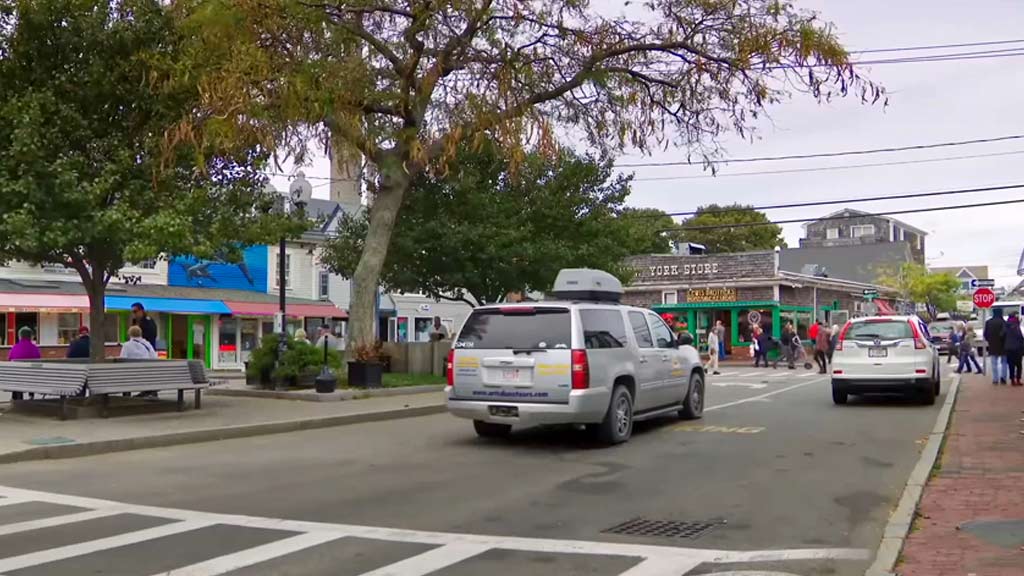
Massachusetts establishes speed limits based on road type, location, and conditions. Law enforcement officers and automated speed detection systems strictly enforce these limits.
Speed limits typically range from 20 to 65 miles per hour on various roadways, including highways, urban streets, and rural roads. Speeding violations can result in fines, license points, and potential license suspension.
Right-of-Way Rules
Massachusetts traffic regulations define clear right-of-way rules to prevent accidents and ensure smooth traffic flow.
For example, vehicles must yield to pedestrians at crosswalks, and at intersections, the vehicle that arrives first or is already in the intersection generally has the right of way.
Additionally, drivers must yield to emergency vehicles displaying flashing lights and sirens.
Lane Usage and Passing Regulations
Massachusetts traffic laws specify rules for lane usage and passing maneuvers. Drivers must use designated lanes appropriately, such as staying in the right lane except when passing on multi-lane roads.
Passing is only permitted when safe and legal, and drivers must return to their original lane once the pass is completed. Solid lines indicate no passing zones, and crossing these lines is prohibited.
Traffic Signals and Signs Compliance
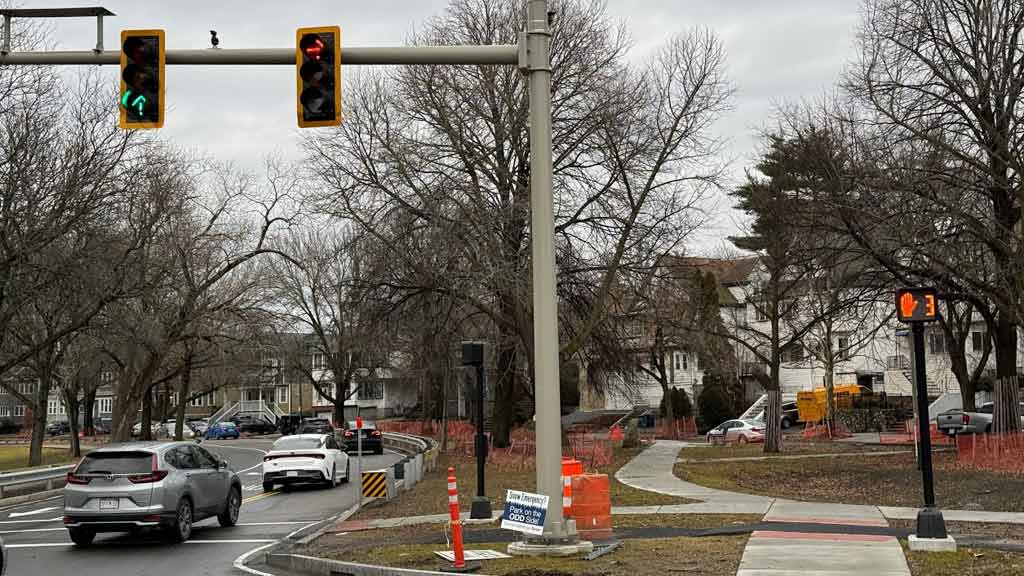
Compliance with traffic signals and signs is crucial for safe driving in Massachusetts. Drivers must obey traffic signals such as red, green, and yellow, as well as stop, yield, and other regulatory signs.
Failure to adhere to these signals can result in traffic violations, fines, and increased risk of accidents.
School Zone Regulations
Massachusetts imposes special regulations in school zones to protect children and ensure their safety during school hours.
Reduced speed limits are typically enforced in school zones during specified times, and drivers must exercise extra caution, especially near crosswalks and school bus stops.
Violations in school zones often carry enhanced penalties due to the heightened risk to vulnerable road users.
Massachusetts traffic regulations cover various road use and conduct aspects, including speed limits, right-of-way rules, lane usage, traffic signals, and special school zones.
Adhering to these regulations is essential for safe and lawful driving in the state, and failure to comply can result in fines, penalties, and an increased risk of accidents or injuries.
Transportation Services and Regulations in Massachusetts
Transportation services and regulations in Massachusetts encompass many aspects, from public transit systems to regulations governing ridesharing services and commercial transportation.
Here’s an overview of transportation services and regulations in the state:
Public Transit Systems
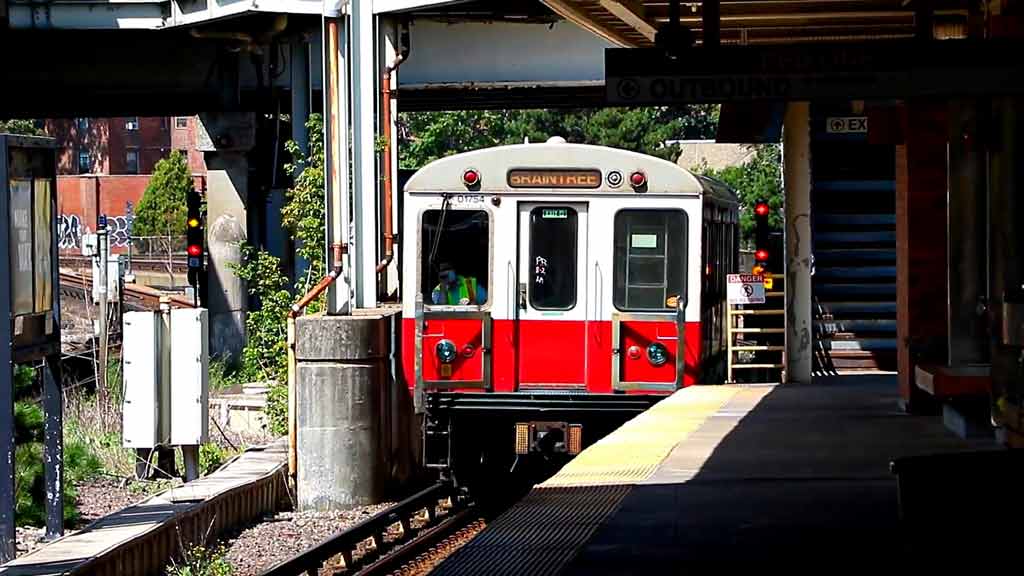
Massachusetts boasts an extensive public transit network, primarily operated by the Massachusetts Bay Transportation Authority (MBTA), also known as the “T.”
The MBTA provides subway, bus, commuter rail, and ferry services in Greater Boston, and beyond, serving millions of passengers annually.
Additionally, other regional transit authorities operate bus services in various parts of the state, providing vital transportation options for residents and visitors.
Ridesharing Services
Ridesharing companies like Uber and Lyft operate throughout Massachusetts, offering convenient transportation alternatives in urban and suburban areas.
The state regulates these services, which sets requirements for driver background checks, vehicle inspections, insurance coverage, and fare structures to ensure passenger safety and fair competition with traditional taxi services.
Taxi and Limousine Regulations
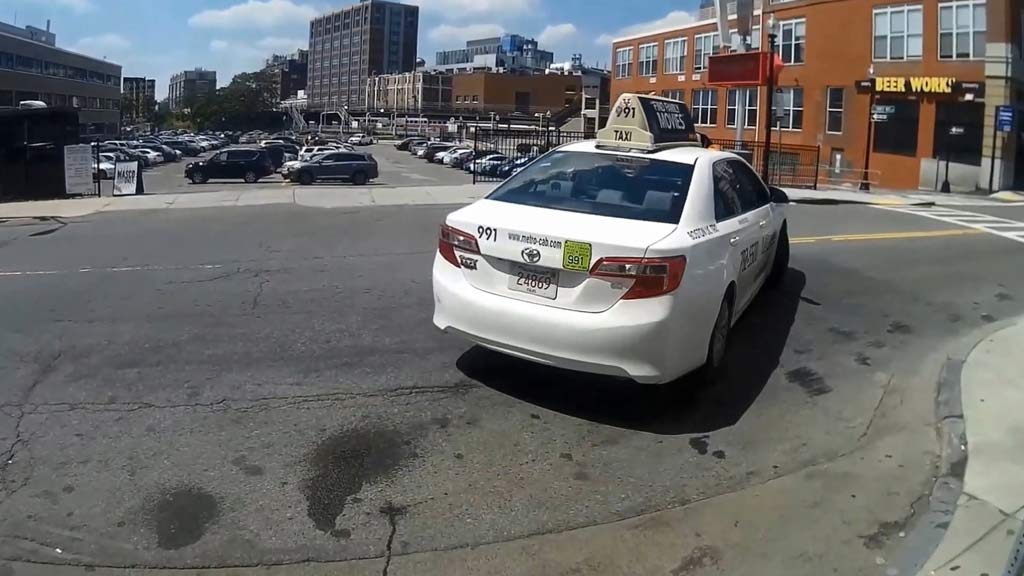
Traditional taxi and limousine services are subject to regulations imposed by local municipalities and, in some cases, the state government.
These regulations may include licensing requirements for drivers and vehicles, fare regulations, insurance mandates, and safety standards.
Compliance with these regulations is necessary for taxi and limousine operators to operate within Massachusetts legally.
Commercial Transportation Regulations
Massachusetts regulates various aspects of commercial transportation, including trucking, freight transportation, and passenger carriers.
Commercial vehicles must adhere to state and federal regulations governing vehicle weight limits, size restrictions, driver qualifications, hours of service, and vehicle maintenance standards.
These regulations are enforced to promote road and highway safety and protect the interests of both commercial operators and the general public.
Bicycle and Pedestrian Infrastructure
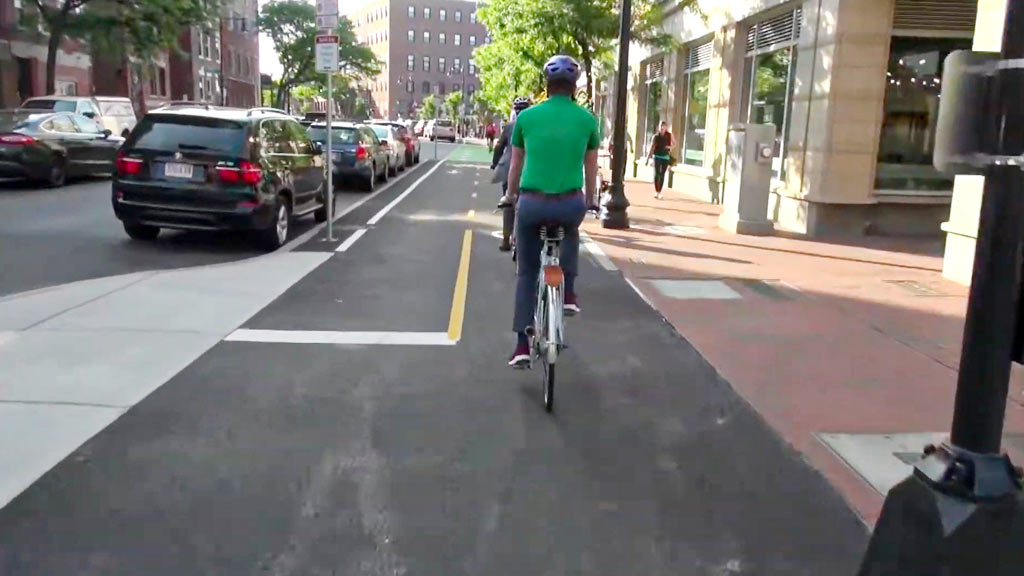
Massachusetts is committed to promoting alternative modes of transportation, such as cycling and walking, to reduce congestion, improve air quality, and enhance public health.
The state invests in bicycle lanes, multi-use paths, and pedestrian infrastructure to accommodate non-motorized transportation and improve safety for cyclists and pedestrians.
Regulations may include rules for sharing the road, bike lane usage, and pedestrian right-of-way to ensure harmonious coexistence with motor vehicles.
Environmental Initiatives
Massachusetts implements environmental initiatives to reduce greenhouse gas emissions and promote sustainable transportation options.
These initiatives may include incentives for electric and hybrid vehicles, funding for public transit projects, and policies to encourage using alternative fuels and clean transportation technologies.
Accessibility Regulations
Massachusetts prioritizes accessibility in transportation infrastructure and services to ensure equal access for individuals with disabilities.
The Americans with Disabilities Act (ADA) mandates accessibility standards for public transit systems, including accessible vehicles, facilities, and services.
Massachusetts also provides paratransit services for individuals who cannot use fixed-route public transit due to a disability.
Transportation services and regulations in Massachusetts are diverse and multifaceted, reflecting the state’s commitment to providing safe, efficient, and equitable transportation options for residents and visitors alike.
Compliance with regulations is essential for ensuring the safety, accessibility, and sustainability of the state’s transportation system.
Traveling Massachusetts with Pets
Traveling with pets in Massachusetts can be a delightful experience for you and your furry companion. Still, it’s essential to know the regulations and accommodations available to ensure a safe and enjoyable trip.
Here are some tips and guidelines for traveling with pets in Massachusetts:
Pet-Friendly Accommodations

Consider pet-friendly accommodations like hotels, motels, vacation rentals, and campgrounds when planning your trip.
Many lodging establishments in Massachusetts welcome pets, but confirming pet policies and any associated fees or restrictions is always a good idea before booking your stay.
Pet-Friendly Attractions
Massachusetts offers a variety of pet-friendly attractions, including parks, beaches, hiking trails, and outdoor recreational areas where you can enjoy quality time with your pet.
Popular destinations like Cape Cod National Seashore, Boston Common, and various state parks welcome leashed pets, providing opportunities for scenic walks and outdoor adventures.
Transportation
If you’re traveling by car, ensure your pet is safely secured in a crate, carrier, or harness to prevent distractions and ensure their safety during the journey.
Massachusetts law requires pets to be properly restrained while riding in a vehicle to prevent them from interfering with the driver or causing accidents.
Additionally, never leave your pet unattended in a parked vehicle, especially during hot or cold weather, as temperatures can quickly become dangerous.
Veterinary Care
Before traveling, visit your veterinarian to ensure your pet is up-to-date on vaccinations and preventative medications.
Carry a copy of your pet’s medical records, including proof of rabies vaccination, in case they are required during your trip.
Research veterinary clinics and emergency pet care facilities along your route in case of any unexpected health issues.
Pet Regulations
Be aware of pet-related regulations and ordinances in the areas you’ll visit.
For example, some beaches and parks may have specific rules regarding pets, such as leash requirements, designated pet areas, and waste disposal guidelines.
Always clean up after your pet and properly dispose of waste to be considerate of the environment and other visitors.
Pet-Friendly Dining
Some Massachusetts restaurants, cafes, and breweries offer pet-friendly outdoor seating areas where you can dine with your furry friend.
Check in advance to see if your favorite dining spots welcome pets, and remember to be respectful of other patrons and follow any establishment-specific rules or guidelines for pet etiquette.
Emergency Preparedness
Prepare a pet travel kit containing essential supplies such as food, water, medications, waste bags, a leash, and a first-aid kit.
Include your pet’s favorite toys, bedding, and comfort items to help them feel secure and relaxed while away from home. Familiarize yourself with nearby pet-friendly accommodations and veterinary clinics in case of emergencies.
Following these tips and guidelines, you can enjoy a memorable and stress-free trip with your pet in Massachusetts, exploring the state’s diverse attractions and scenic landscapes together.
Whether you’re strolling through historic neighborhoods in Boston, hiking in the Berkshires, or relaxing on the beaches of Cape Cod, your furry companion can be your trusted travel companion every step of the way.
FAQs
Are out-of-state drivers required to follow Massachusetts traffic laws?
Yes, regardless of residency, all drivers must adhere to Massachusetts traffic laws while driving within the state.
This includes obeying speed limits, traffic signals, seat belt laws, and other regulations outlined in the Massachusetts General Laws governing motor vehicle operation.
What are the penalties for driving under the influence (DUI) in Massachusetts?
Penalties for DUI, also known as OUI (Operating Under the Influence), can include fines, license suspension, mandatory alcohol education programs, and potential imprisonment.
The severity of penalties depends on factors such as blood alcohol content, prior offenses, and any resulting accidents or injuries.
Are there specific rules for using electronic devices while driving in Massachusetts?
Yes, Massachusetts prohibits texting for all drivers and prohibits drivers under 18 from using any electronic device, including cell phones and smartphones.
Violations can result in fines, license suspension, and increased risk of accidents.
Are there any special regulations for child passengers in vehicles?
Yes, Massachusetts has strict child passenger safety laws.
Children under age 8 and under 57 inches tall must be secured in a federally approved child passenger restraint that is properly fastened and secured according to the manufacturer’s instructions to ensure their safety while traveling.
Wrapping Up
Understanding Massachusetts travel laws is crucial for residents and visitors to ensure safe and lawful travel throughout the state.
From obeying speed limits and traffic signals to adhering to seat belt and child passenger safety regulations, compliance with these laws is essential for promoting road safety and preventing accidents.
Whether driving through bustling city streets or scenic rural routes, drivers must stay informed about Massachusetts’ specific rules and regulations.
By doing so, individuals can help maintain order on the roads, protect the well-being of themselves and others, and avoid the consequences of traffic violations.
Ultimately, a thorough understanding of Massachusetts travel laws fosters a culture of responsible driving and contributes to a safer and more enjoyable travel experience for everyone.
Naim Benmayor